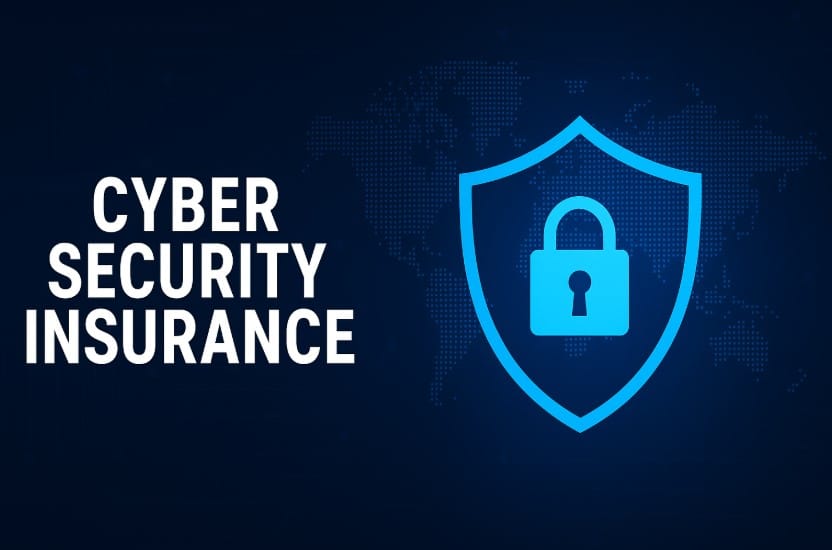In today’s hyper-connected world, Malaysian businesses face more digital risks than ever before. From ransomware attacks to data breaches, the threats are real—and costly. One cyberattack can cripple operations, damage reputation, and lead to substantial legal and financial consequences.
To mitigate these risks, more companies are turning to cyber security insurance as part of their risk management strategy. But what exactly does this type of insurance cover? And how does it differ from more traditional policies like public liability insurance Malaysia?
Let’s break it down.
What Is Cyber Security Insurance?
Cyber security insurance, also known as cyber liability insurance, is a type of insurance that helps businesses recover from the financial impact of cyberattacks and data breaches.
It provides coverage for both first-party losses (your business) and third-party liabilities (customers, vendors, or partners affected by the incident).
This insurance is specifically designed to address the unique and evolving risks associated with operating in the digital landscape.
Why Malaysian Businesses Need Cyber Security Insurance
Malaysia is rapidly digitalizing—so are cybercriminals.
According to Cyber Security Malaysia, cybercrime cases have risen dramatically, with small and medium enterprises (SMEs) often being the most vulnerable. Yet many businesses underestimate their exposure to risk until it’s too late.
Key reasons to consider cyber insurance:
- High cost of data recovery and downtime
- Legal liabilities due to personal data breaches
- Ransomware demands and extortion threats
- Damage to brand reputation and customer trust
- Compliance with laws such as the Personal Data Protection Act (PDPA)
Simply put, if your business handles data, uses emails, processes online payments, or stores client information—you need protection.
What Does Cyber Security Insurance Cover?
While coverage varies depending on the policy and provider, most cyber insurance plans include the following:
First-Party Coverage (Your Own Losses)
Data restoration
Cost to recover or restore data after a breach.
Business interruption
Compensation for loss of income during downtime.
Cyber extortion
Ransom payments and negotiation costs.
Incident response
IT forensic support, legal advice, and crisis management.
Notification costs
Expenses to notify affected customers and regulators.
Third-Party Coverage (Others Affected)
Privacy liability
Legal costs and damages related to compromised personal data.
Regulatory fines
Penalties from regulatory bodies for non-compliance.
Media liability
Claims arising from defamation or copyright infringement due to a hack.
Network security liability
Coverage if your systems spread malware or cause service interruptions to third parties.
What’s Not Typically Covered?
Cyber insurance isn’t a catch-all solution. Here are some common exclusions:
- Intentional or criminal acts by employees
- Failure to maintain basic cybersecurity protocols
- Prior known incidents or vulnerabilities
- Loss of future profit or market share
- Physical property damage (covered under different policies)
Make sure to read your policy carefully and work with a knowledgeable insurance advisor to tailor your coverage.
Cyber Security Insurance vs. Public Liability Insurance Malaysia
Many Malaysian business owners are already familiar with public liability insurance, which covers third-party injuries or property damage occurring at your business premises.
So, how does that differ from cyber insurance?
Feature | Cyber Security Insurance | Public Liability Insurance Malaysia |
Focus | Data breaches, digital threats | Physical injury, property damage |
Coverage Area | Online systems, email, databases, networks | Business premises, onsite operations |
Liability | Legal costs from compromised data | Legal costs from injury/property claims |
Target Risks | Cyberattacks, hacking, phishing, ransomware | Slips, falls, third-party property damage |
Conclusion: Cyber security insurance covers the digital side of your risk profile, while public liability focuses on physical, in-person interactions. Both are essential in today’s hybrid business environment.
Who Should Get Cyber Insurance in Malaysia?
While every business with digital operations can benefit from cyber insurance, it’s especially relevant for:
- E-commerce stores
- Financial institutions
- Legal and accounting firms
- Healthcare providers
- Tech startups and SaaS companies
- SMEs with customer databases
If your business collects, stores, or processes personal or sensitive information, you are exposed to potential cyber liability.
How to Choose the Right Cyber Insurance Policy
Here are key factors to consider when evaluating a cyber insurance provider:
1. Customisable Coverage
Look for a plan that fits your business size, industry, and risk profile. Not every business needs the same level of protection.
2. Clear Incident Response Support
Choose a provider that offers expert support during and after a cyber incident—this can be crucial to minimizing damage.
3. Global and Local Coverage
If you deal with clients or data across borders, make sure your policy covers international risks and complies with regulations like the PDPA.
4. Reputation and Claims Process
Evaluate the insurer’s track record in handling cyber claims efficiently. A strong support team makes all the difference.
How Much Does Cyber Security Insurance Cost?
Premiums depend on several factors, including:
- Your industry and type of business
- Number of customers and data volume
- Existing cybersecurity measures
- Annual revenue
- Coverage limits and deductibles
For most SMEs in Malaysia, annual premiums can range from RM2,000 to RM15,000, depending on the scope of protection.
Minaris: Your Risk Management Partner
At Minaris, we understand the evolving risks businesses face in Malaysia’s digital economy. Our team of experts helps tailor cyber security insurance policies that align with your operations—whether you’re running an online retail platform, a regional financial firm, or an SME with sensitive data.
We also offer complementary coverage like public liability insurance Malaysia, helping you build a well-rounded insurance portfolio.
Contact us today to discuss your cyber insurance needs and protect your business with confidence.
Final Thoughts
As cyber threats become more sophisticated, Malaysian businesses must move beyond antivirus software and firewalls. Cyber security insurance is not a luxury—it’s a necessity for business continuity, legal compliance, and customer trust.
Pair it with a solid cybersecurity framework and policies like public liability insurance, and you’ll have a robust defense against both physical and digital risks.
Protect your data. Protect your future. Insure your business with Minaris.

KH Chew is the Founder and Risk Advisor of Minaris, with over 30 years of experience in the insurance industry. He holds a Diploma in Insurance from the Malaysian Insurance Institute (MII), which laid the foundation for his in-depth expertise in property, financial lines, and other general insurance products. He is widely recognized for developing tailored insurance schemes for professionals and businesses across Malaysia. KH is also a passionate advocate for risk management and regularly advises clients and trade associations on comprehensive coverage strategies.

